
One of our main priorities is to ensure universal access to, and informed use of effective contraception. Millions of people lack the knowledge and information to determine when or whether they have children, and they are unable to protect themselves against sexually transmitted infections (STIs).
Articles about Contraception
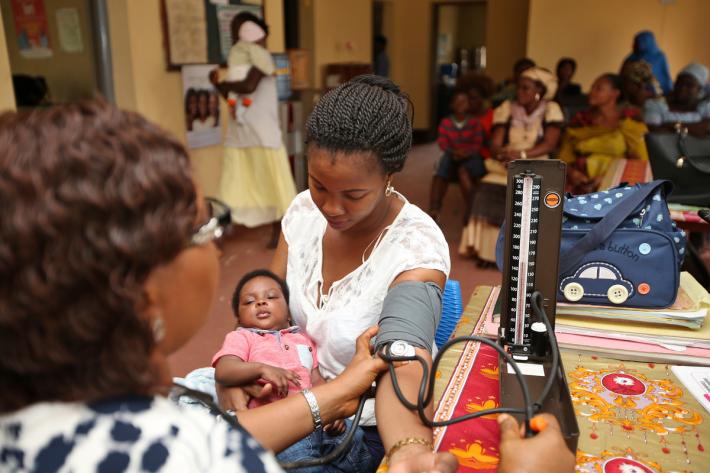
Family planning success: one mother's story from Nigeria
"I decided to use this clinic because I heard a lot of success stories about it. I trust their judgment that is why I am here.” Taiwo Ogunfayo, a 33-year-old interior decorator, is a client at the Liberty Stadium Clinic – one of Planned Parenthood Federation of Nigeria (PPFN) facilities in Ibadan, the Oyo State capital in South West Nigeria. "It was through the outreach service in my community that I found out about PPFN. All the family planning methods are free if you can't afford to pay. There is no cost to the patient."
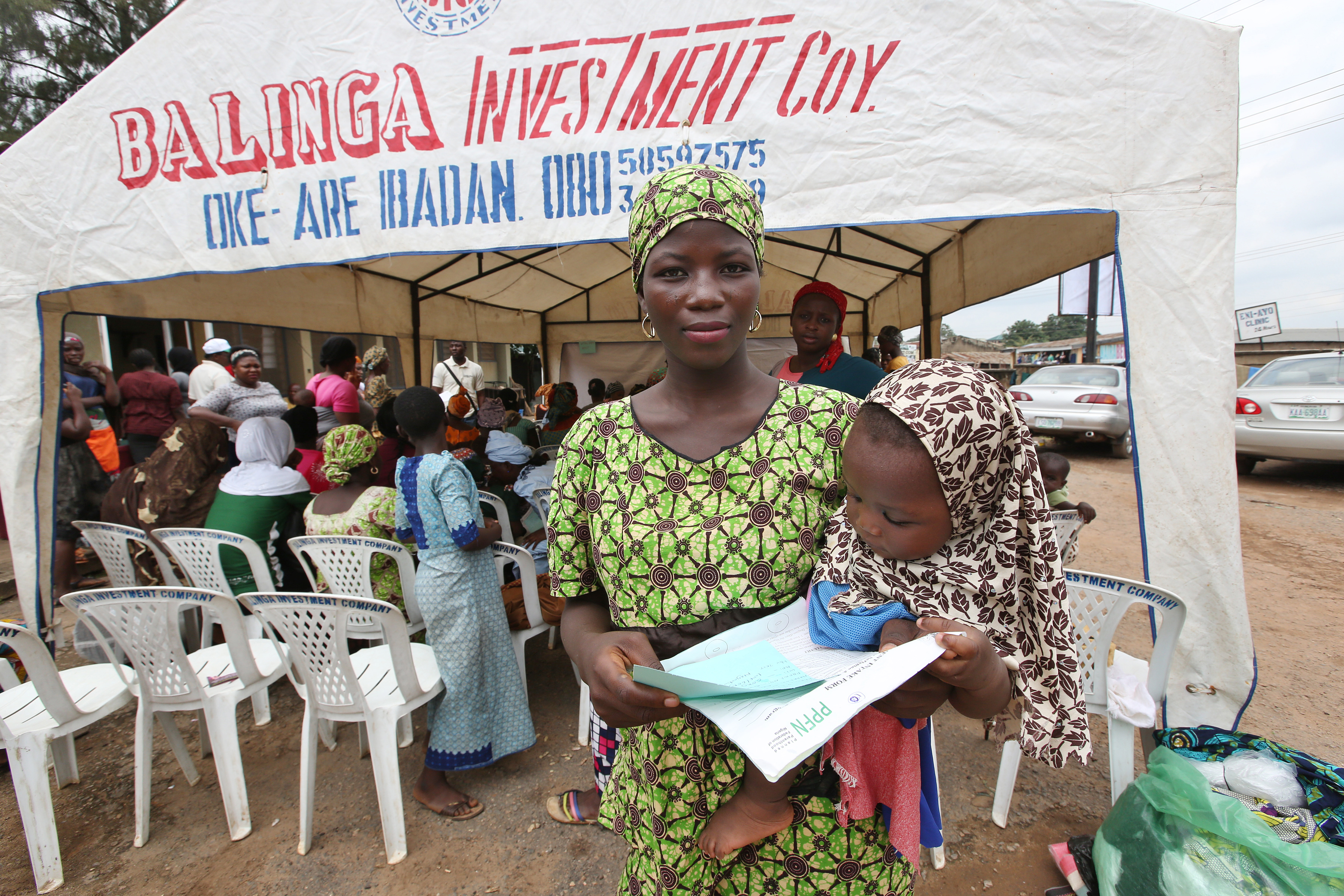
Expanding our range of services in Nigeria
IPPF's Member Association in Nigeria, the Planned Parenthood Federation of Nigeria (PPFN), piloted a successful project over 9 months around family planning. It had a specific focus on accessing people who would not ordinarily be reached through services and worked with local partners to ensure that no one was left behind. This project, funded by the Gates Foundation, exceeded targets significantly and has the potential to be rolled out in Nigeria and other countries. It has been successful in establishing new users of contraception and other sexual and reproductive health services.
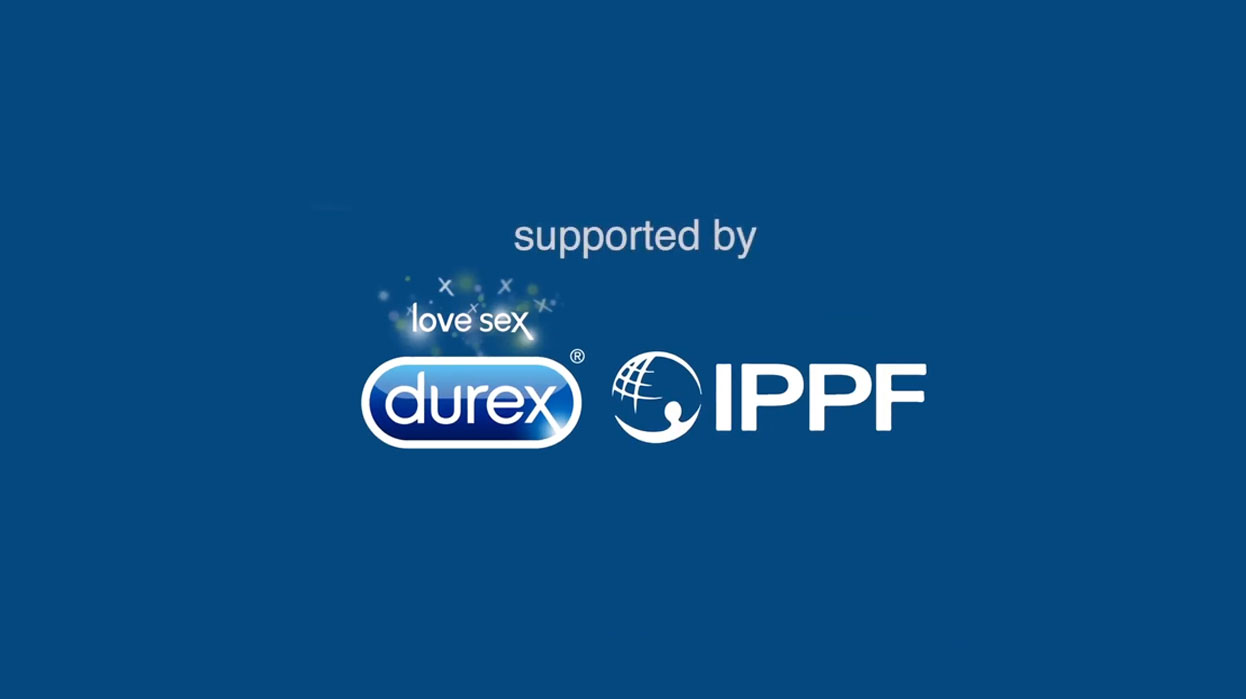
IPPF and Durex join forces to raise awareness of Zika as an STI
Global #DontShareZika campaign launched to spread the message with an educational video and condom giveaway. As the global focus shifts to Brazil, the world’s leading sexual wellbeing brand Durex and the International Planned Parenthood Federation (IPPF) have joined forces to launch #DontShareZika, a global campaign to raise awareness of the Zika virus, educate about its status as a sexually transmitted infection (STI) and provide direct support by handing out millions of free condoms. We're working with @ippf to help stop the spread of #Zika. Want to help? Share this, but #DontShareZika… pic.twitter.com/hdhx51sEi2 — Durex Global (@durex) August 5, 2016 The move follows the update by the World Health Organization (WHO), confirming that in addition to being spread by infected mosquitoes, Zika* can also be transmitted sexually. This means that everyone - including people in a monogamous relationship - may be at risk from the STI if they, or their partner, have visited an affected area and been bitten by an infected mosquito. As an STI, the Zika virus has the potential to travel and spread between people who may not even realise they are infected. In response, Durex have created the #DontShareZika video to educate that the Zika virus can be passed between couples during unprotected sex, and committed to a giveaway of three million free condoms in Brazil. WHO recommends that men and women returning from an area where Zika is circulating should practice safer sex, including through the correct and consistent use of condoms, for at least eight weeks after leaving an affected area, even if they don’t have symptoms. At a time when Brazil is expecting as many as a million extra visitors from across the globe, the #DontShareZika campaign aims to spread this important message as widely as possible to limit the risk of further infections. #DontShareZika follows recent work by Durex lobbying for the world’s first safe sex emoji** designed to help young people discuss safe sex. Both initiatives are part of Durex’s continuous efforts for better sexual health and education globally. “As the world’s number one sexual wellbeing brand we have a responsibility to make people aware of this STI, to help people to stay healthy and to prevent the sexual transmission of the virus.” commented the Global Director ofRB the brand, Volker Sydow. IPPF Director General Tewodros Melesse, added; “Our aim is to ensure all people have access to sexual and reproductive health information and services. At the moment, many people still don’t realise that Zika can be transmitted sexually. Communicating this and enabling people to protect themselves and their partners is critical, so we welcome #DontShareZika and Durex’s free condom giveaway in Brazil.” Durex are calling for people to support the campaign and help share a message of protection and prevention faster than this STI, Zika, can be spread, by sharing the informative video and using the hashtag #DontShareZika. Follow @Durex for more information. For more information on the Zika virus visit: http://www.who.int/mediacentre/factsheets/zika/en/. -ENDS- For further information please contact Amy Williams: [email protected]/ 0207 292 5084 or Toby Leston: [email protected]/ 0207 2929 6451 Notes to Editors * Zika virus is linked to microcephaly - a condition where babies are born with brain damage and undeveloped heads. ** www.youtube.com/watch?v=O7iKgKpkWfU About Durex Durex® is the #1 sexual wellbeing brand worldwide. The brand not only produces condoms that exceeds global testing standards, but also offers pleasure gels, lubricants and personal massagers. With over 80 years of experience in the bedroom, Durex is dedicated to inspiring lovers to love sex safely. That is why Durex will never stop innovating with new products that enhance the sexual experience, helping couples get closer and go further together. For more information, go to www.Durex.com. About RB* RB is the world’s leading consumer health and hygiene company. The company has operations in over 60 countries, with headquarters in London, Dubai and Amsterdam, and sales in most countries across the globe. The company employs approximately c. 37,000 people worldwide. Inspired by a purpose to deliver innovative solutions for healthier lives and happier homes, RB is in the top 20 companies listed on the London Stock Exchange. We are the global No 1or No 2 in the majority of our fast-growing categories, driven by an exceptional focus on innovation. Our health, hygiene and home portfolio is led by our global Powerbrands including Nurofen, Strepsils Gaviscon, Mucinex, Durex, Scholl, Clearasil, Lysol, Dettol, Veet, Harpic, Cillit Bang, Mortein, Finish, Vanish, Calgon, Air Wick, Woolite and French’s. Our Powerbrands represent 80% of net revenue. RB is redefining the world of consumer health and hygiene. Our people and unique culture are at the heart of our success. We have a drive for achievement and a passion to outperform wherever we focus, including sustainability where we are targeting a 1/3 reduction in water impact, 1/3 reduction in carbon and 1/3 of net revenue from more sustainable products. We are proud to be Save the Children’s largest global partner, with a new vision to radically reduce one the world’s largest killer of under 5s, diarrhea. For more information visit www.rb.com. *RB is the trading name of Reckitt Benckiser group of companies About IPPF IPPF delivers sexual and reproductive health services that let people make their own choices. We fight for everyone to have the right to make those choices. We are local, through our members and volunteers, and global, through our network. We meet need, wherever it is, whoever requires it, for as long as they want it.
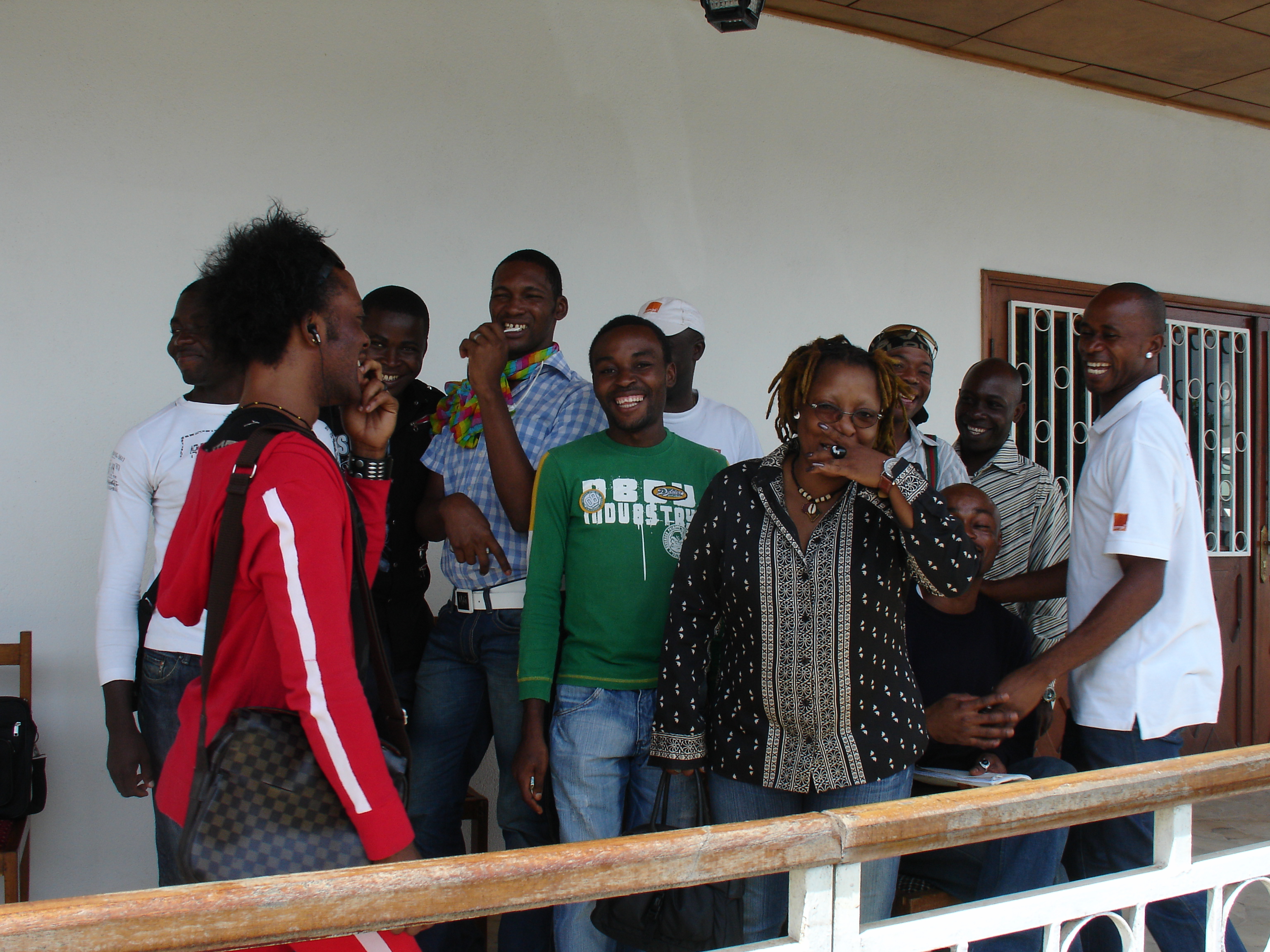
Focus on Family Planning: Only young people can say what they need
Kader Avonnon, Regional President and National Treasurer, Mouvement d’Action des Jeunes Bénin, reflects on Benin's commitments to FP2020 and youth role.
Sexual health and education in the slums: one year in Kibera
Lorraine Nabwire has a hard job, in a tough place. Lorraine is centre manager of the Family Health Options Kenya (FHOK) clinic in Kibera, Nairobi – a place best known for being Africa’s biggest urban slum. No-one is sure exactly how many people live crammed into Kibera – estimates range from fewer than 200,000 to around 800,000. But there’s no doubting the challenges faced by its residents. “Poverty here is high, people are poor,” explains Lorraine. “People do not have flushing toilets; they share latrines, maybe one for five families. When it rains they flood into the roads. And the drains are open. They pose a risk to children and it’s why we have a lot of cholera in Kibera.” Homes in Kibera are invariably tiny corrugated iron shacks, with mud or concrete walls, one crammed by the next. Running water comes from shared standpipes. Electricity is hooked illegally, and dangerously, from power lines. “When the power company removes them they just come back. The poor connections for electricity mean we have a lot of fires here,” Lorraine says. Until 2015, FHOK provided sexual health care in Kibera from mobile units. Then in July, a permanent centre was opened. Lorraine has been in charge of it since day one. Amid the shanties, the FHOK clinic in Kibera is a welcoming place; brightly painted outside with a mural showing a carefully planned, smiling family, cool and calm inside. But to walk inside involves stepping over an open drain – a reminder of its whereabouts. Lorraine is very honest about the challenges she has encountered in Kibera. “It’s work in progress. At the start we might get five people a day coming to us. Now it is more than 20. It’s good to be positive, despite progress being slow.” It’s clear there is a great need for better sexual health care in Kibera. “People in Kibera do have many children, and the child bearing age is early, as early as 15,” explains Lorraine. “By the time they are 24 they have four kids, or more.” Backstreet abortions are frequent, and HIV infection and rates of sexually transmitted infections (STIs) are also a concern. But despite the unmet need for sexual health services and the low cost of treatment – most tests are no more than 50 Kenyan Shillings, about half a US dollar, and even those fees are waived for people who can’t pay at all - worries about stigma and myths around the side effects of family planning discourages potential clients. “The young, say 15 to 19, have fear of being stigmatised. They think someone might say “Hey, you?” so they don’t come. There is poor health-seeking among the youth, but also an unmet need for family planning,” explains Lorraine. Myths around family planning are also a problem. “People think family planning causes infertility, causes bleeding in pregnancy and other things. Most of these comments come from men, but if they do not want women to come they will not.” Changing attitudes is very much part of the work of Lorraine’s team, and they have developed a battery of methods. “We recruited community health volunteers in Kibera, our voice and our ears,” says Lorraine. “They refer people who need our services to us, tell us what people are saying about us and what they need that we are not giving. Since then our client flow has been improving. We had an in-reach day recently and we had about 80 clients. That was good.” Lorraine and her staff also take part in a weekly radio show, called “Health Talk” on the local Swahili radio station to challenge stigma and myths. Regular community events are helping, and the team also goes into schools in Kibera to teach sexuality education. “Sexual debut is as early as nine, so we are going into primary schools as well as secondary schools,” Lorraine says. “If you don’t start until children are 14 then you are already late.” As the FHOK clinic in Kibera celebrates its first anniversary, Lorraine is clear about how she hopes it will develop in the year ahead. “I want to see the community taking-up what we are doing so that it is community-led, not FHOK-led, so we are behind the scenes. We have to be part of the community.”
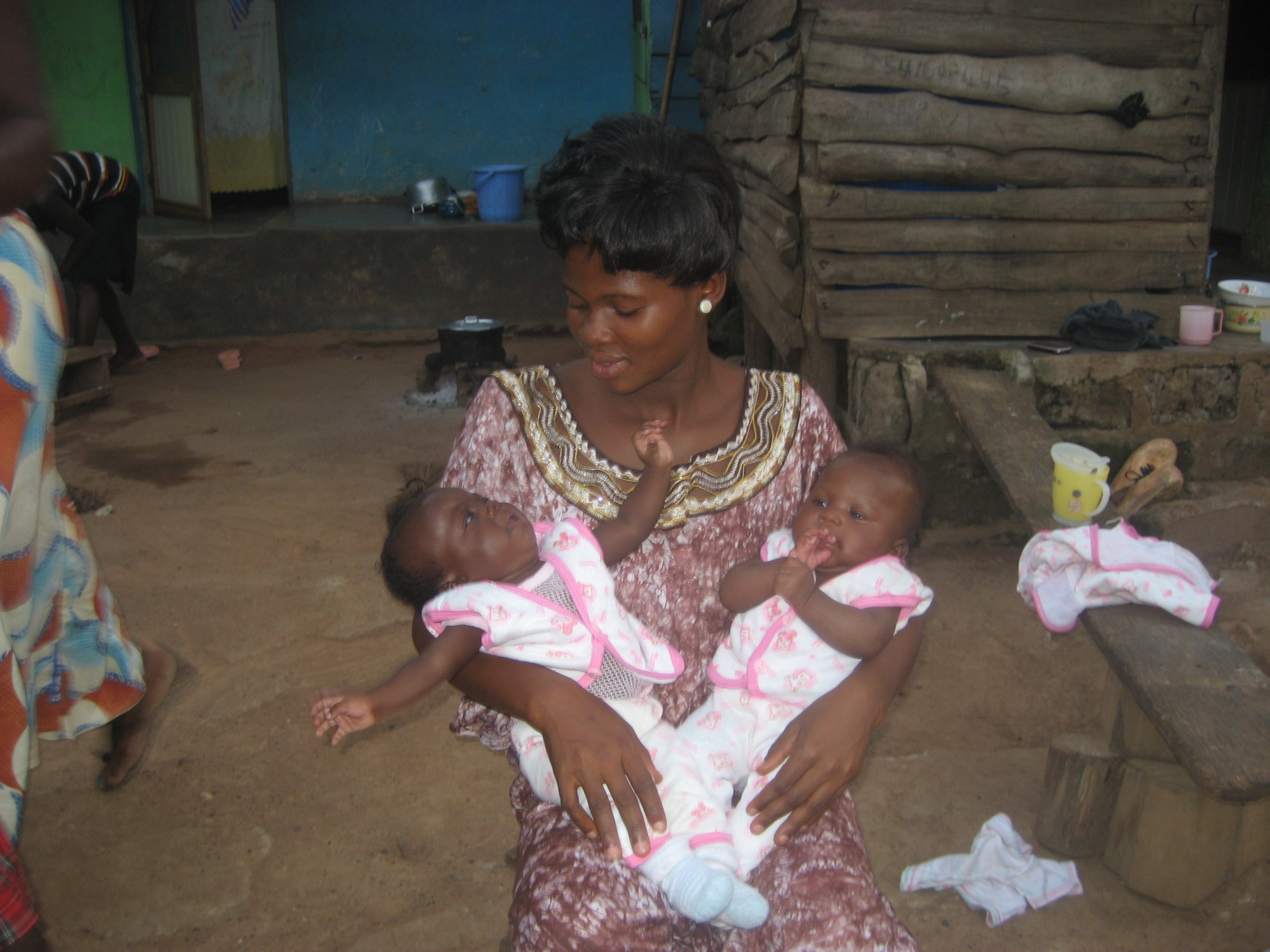
Focus on Family Planning #4: Targeting teenage pregnancy
As a schoolgirl Matilda Yeboah from Adentia in Ghana used to dream about what her life would be like in the future. The 17-year-old said: “I never once pictured myself as a victim of early pregnancy.” But that’s exactly what happened and Matilda became a single mother of twins. Unintended pregnancy is one of the most common challenges faced by adolescent girls in Ghana where young people aged between 15 and 24 years constitute almost 33% of the population. According to the Ghana Health Service (GHS), in 2011 the Brong-Ahafo Region (Sunyani) had an adolescent pregnancy rate of 21.9%, which dropped to 13.3% in 2012, but began to rise again in 2013 at a rate of 13.6%. Like many other young people in similar situations Matilda struggled to access antenatal care. Finally she managed to get an appointment when she was seven months into the pregnancy and then thanks to the ASK (Adolescents, Services and Knowledge) Project run by the International Planned Parenthood Federation, Matilda got the right care. The project is a partnership programme funded by the Dutch Government. It is aimed at ensuring that young people have direct and increased access to integrated, quality sexual and reproductive health and rights services, especially those in vulnerable situations. Matilda faced complications during the delivery of her babies and was advised to give birth through a caesarean section. Without the support of the ASK project, Matilda would probably have had a home delivery where such complications would not have been detected, and could have resulted in the death of both the mother and the babies. Matilda and her own mother were overcome with gratitude at the safe delivery of the twins and could not hold back their tears and words of appreciation. Matilda now wants to go back to school. She hopes to build a better life and secure her own future and that of her twins. The ASK project in Ghana, supported by the Planned Parenthood Association of Ghana (PPAG), and other partners, aims to improve and strengthen the Sexual and Reproductive Health Rights (SRHR) programme and interventions targeted at young people. The project is making huge steps forward in reducing maternal mortality among adolescents, by ensuring young people have access to critical services and by improving partnerships among stakeholders in the country. In 2012, at the London Summit on Family Planning, the Government of Ghana pledged to increase access to family planning nationwide. Its particular focus is to provide services for sexually active young people through youth promoters and adolescent friendly services. The government also promised to prioritise improved counselling and customer care. We are at the mid-point of these promises and more needs to be done to achieve the 2012 commitments. Investing in family planning is one of the most cost effective strategies that governments can take to secure a healthy population and reduce risks like maternal mortality – which, with a growing population, is exactly what Ghana needs.
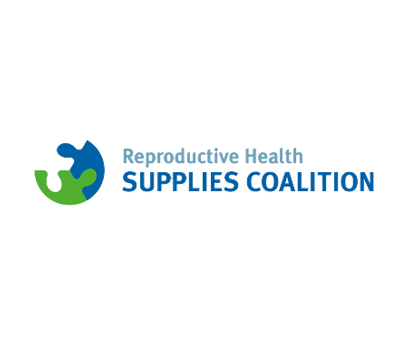
Reproductive Health Supplies Coalition (RHSC)
IPPF is an active member of the Reproductive Health Supplies Coalition (RHSC). Collaboration has strengthened IPPF’s contributions to commodity security. By encouraging the global focus towards increased access to reproductive health supplies, IPPF and RHSC have fortified a pillar of SRHR delivery in ensuring that individuals can access the reproductive health commodities they want when they need them.
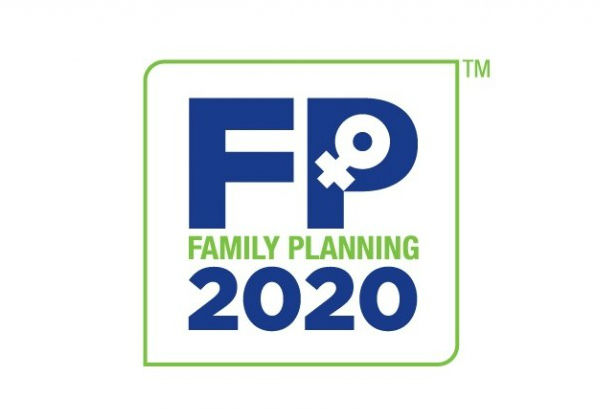
FP2020
IPPF is a committed member of the FP2020 global partnership. As members of the Reference Group, along with leaders of the family planning community, we support the rights of women and girls to decide, freely, and for themselves whether, when and how many children they want to have. As the largest civil society provider of family planning, IPPF plays a global leadership role. IPPF has made an ambitious pledge to reach 60 million new users with family planning services between 2012 and 2020 across 59 of the 69 FP2020 focus countries.
Counting down on family planning goals: Tewodros Melesse writes in the Huffington Post for World Population Day
First published in Huffington Post on 5 July 2016 Twenty-three-year-old Jasmin Akter from the northern district of Gaibandha in Bangladesh knows what it feels like to grow up in hardship and poverty. She left primary school after her father died and had to get a job to help her mother look after her younger siblings. She was luckier than many of her peers who were forced into early marriage because she was able to get a job at a garment factory. At the factory she met her husband and got access to sexual and reproductive health services for the first time. They got family planning advice and are now in a position to choose the right time for them to have their first child. “Without family planning,” Jasmin continues, “I would not have been able to reach this level in my job. This is not about the associated expenditure of a baby but the care and safety of the baby. No matter how much I am earning, the important thing is that I am earning something myself, it gives me a lot of confidence.” She added that if she had become a mother at such an early age, I am afraid I would not have been able to help my baby and hold down a job as well. I do dream of being a mother, maybe in one year, after becoming more settled in my job and conjugal life.” Around the world 225 million girls and women like Jasmin would like to be able to make informed choices and get access to contraception but at the moment they can’t. It was this huge global shortfall in access to contraception that prompted world leaders and health experts to join forces at the Family Planning Summit in London in 2012. During the summit a commitment was made to enable 120 million more women and girls to use contraceptives by 2020 through a global partnership called Family Planning 2020 (FP2020). We are now almost halfway through that period but there’s still a long way to go. FP2020 says: “An unprecedented 290.6 million women and girls in the world’s poorest countries are now able to decide for themselves whether and when to get pregnant, an increase of 24.4 million from the time of the London Summit. “Nevertheless, our results aren’t measuring up to our ambition. We’ve reached 24.4 million women and girls with lifesaving contraception, but that’s 10 million fewer than we had hoped to reach by this time. If we continue at this rate, we risk missing our goal—and leaving millions of women and girls without the care and services they need and deserve.” At IPPF we don’t want anyone to miss out on choosing for themselves whether they have children, when they have them or how many they have. That’s why we are increasing our commitment to family planning. We announced an ambitious new goal to reach 60 million first time users of contraception between 2012 and 2020 - a significant contribution to the FP2020 global goals. Thank you to @ippf for pledge to serve 60M NEW users of contraception to meet #FP2020 goals! #ICFP — Family Planning 2020 (@FP2020Global) 28 January 2016 IPPF is on target to double SRH services, and treble contraceptive services by 2020. The federation has already achieved its goal of reaching 15 million new users between 2012 and 2015 but we know that now is not the time for complacency. There are still huge obstacles to overcome when it comes to getting contraceptive supplies out to those that need them most and there are some groups that are still missing out like unmarried adolescents. As we reach the halfway mark on July 11th we are calling on governments around the world to keep to the family planning commitments they made four years ago to ensure women like Jasmin Akter can decide freely for themselves.
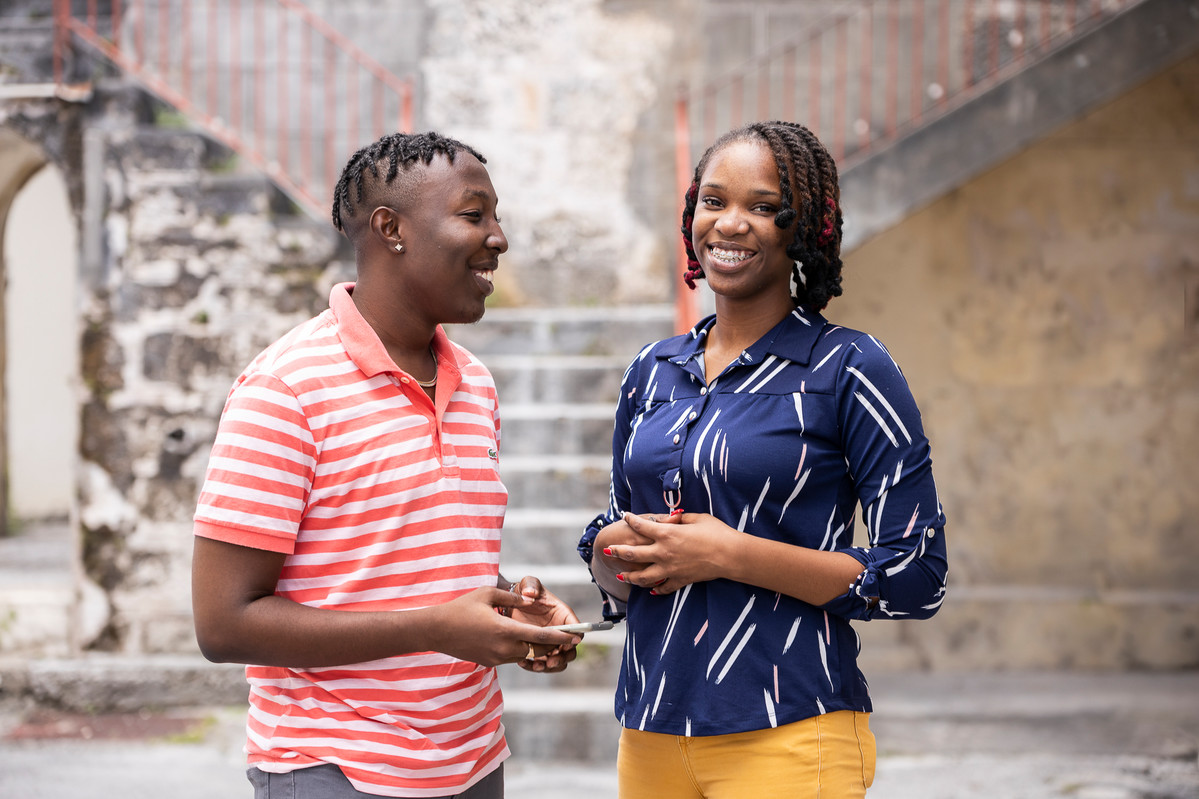
Guttmacher & IPPF report
The ‘Demystifying Data visualization tool’ is intended to help inform advocacy work around adolescent sexual and reproductive health issues, including increasing funding and improving access to information and services. It compiles data from national surveys in 30 countries and offers a snapshot of the current challenges that young people face when trying to access Sexual and Reproductive Health (SRH) services. The tool highlights in particular the need for comprehensive sexuality education to empower thousands of young people around the world. In many countries, girls and young women’s access to contraception and other sexual reproductive health services are limited. This can lead to unwanted pregnancy, sexually transmitted infections (STI) and unsafe abortions. Unmarried women and young girls are often denied sexual and reproductive health services even when vulnerable to violence and sexual abuse. Investing in girls’ empowerment through comprehensive sexuality education and access to youth friendly sexual and reproductive health services will contribute to end the cycle of violence.
Pagination
- Previous page
- Page 18
- Next page






